Preface
Hello everybody, let me introduce myself. I am the Pearl guava from Xizhou Township, and my family members are scattered around many parts of the country. I live on the water of the Jhuoshuei River, and therefore have the best quality and price among all species in Taiwan.
Want to know more about me? The following is a more detailed introduction to·Qour life experience.
Follow me go¡I
TOP
Birth and Development
Xizhou boasts a longest history of guava plantation, and many peasants whom we interviewed told us they have planted guavas for over 40 years. In the very beginning, they planted local guavas. Two decades later, they began to introduce the Thailand’s guava and Century guava.
About twenty years ago, many farmers started to plant Century guava and Thailand’s guava, which are regarded as my predecessors, in a cross fashion, so that they could be grafted to produce various kinds of new species. Then the farmers tried to find out the best-tasting guava tree, which was Pearl guava.
Why were we called Pearl guava? It is because we have a fine skin and looks very much like eggs. Our old names were Dragon-Phoenix guava or Honey guava. Now we are called Pearl guava.
Xizhou’s Pearl guava planation started from 1989. As a growing number of merchants were attracted to Xizhou to purchase the guava, more and more farmers have switched to Pearl guava cultivation. Thus we have the advantage of concentration.
The deputy leader of the guava production and marketing group mentioned that in earlier times, there was no factory around Xizhou, and guava cultivation required labor. As Xizhou boasted a large population, guava planation became a popular industry very quickly. He said he decided to learn this skill because he believed guava plantation could bring remarkable profits.
Some other farmers tried to plant Crystal guava in the wake of Pearl guava plantation. Yet many of them thought that although Crystal guava had fewer seeds and tasted crips, and could quote a good price, such species was difficult to manage and bear fruit. Its plantation area remains small over the years.
TOP
How to grow Pearl guava
The good quality of the Jhuoshuei River helps Pearl guava grow well in Xizhou. Some farmers believed that the water from the Jhuoshuei River could make the soil better and the Pearl guava grow bigger and sweeter. Due to the muddy water of Jhuoshuei River that contains more moisture, the pulp of the Pearl guava is finer and tasty.We Pearl guavas are very lucky to be grown in such an environment and well attended to by the farmers. Follow me to see more about our process of growing.
| How to grow |
Description |
Photos |
1.Growing tree seedlings |
The farmers bought tree seedlings back to grow. A year later, guava trees began to prosper. |
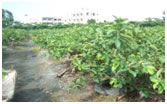
|
2.Cutting out boughs |
The farmers would cut off some twigs and boughs to save more nutrition for the tree. |
3.Dispensing fruit
|
If there are two growing on the same position, then one has to be removed. |
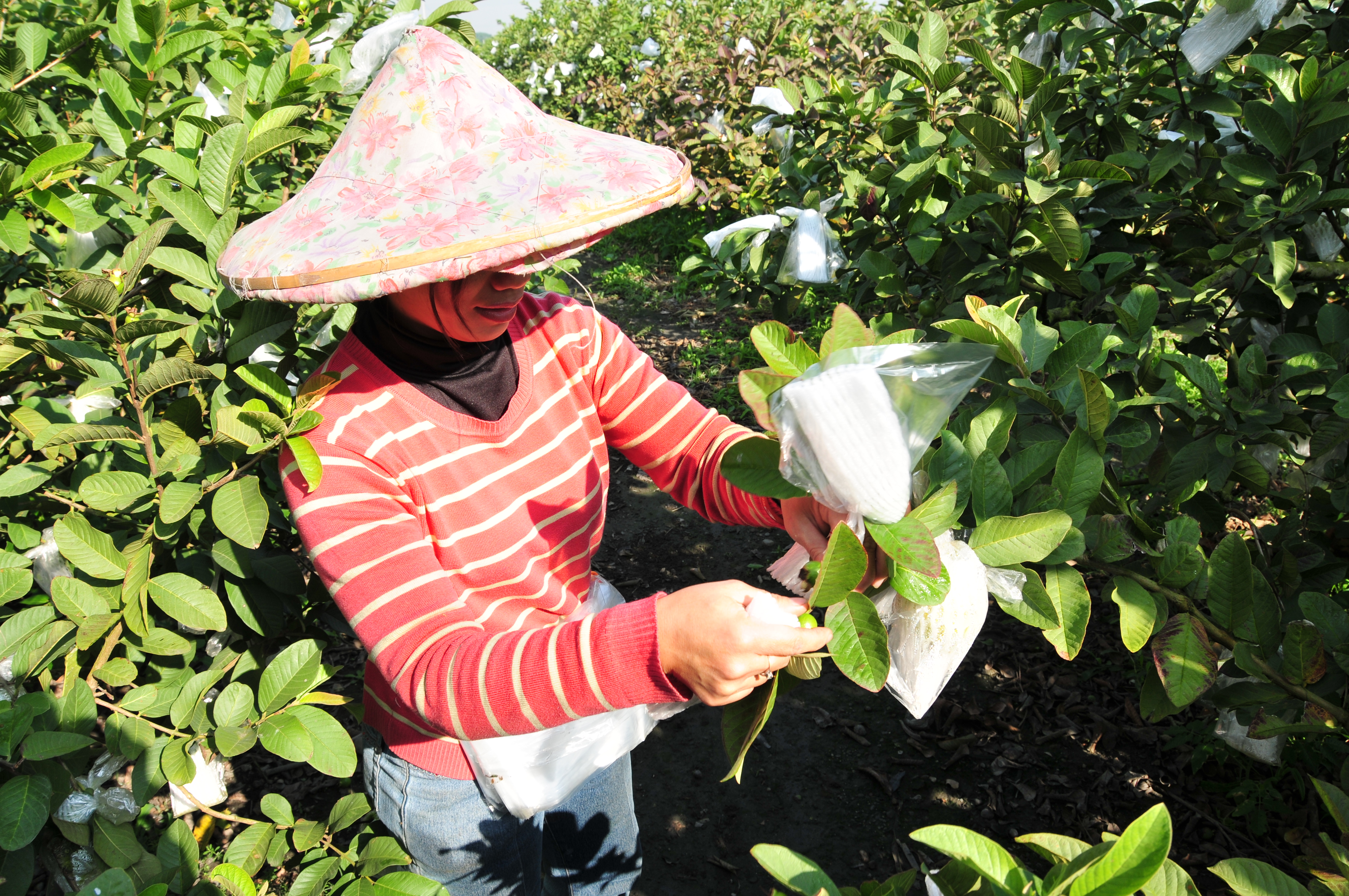
|
4.Branching |
Branching the tree so that the entire tree can produce fruits |
5.Blossoming |
Preparing for bearing fruit. |
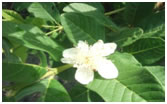
|
6.Bearing fruit |
Bearing fruit |

|
7. Covering with bags |
The farmers would cover the guavas that look unstained and beautiful with plastic bags for further protection. |
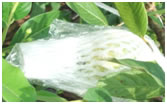
|
8.Spraying pesticides |
Although organic agricultural products are welcome by consumers, it’s nearly impossible to grow organic guava, as guava is liable to pests. Consumers needn’t worry about pesticides because the guavas were all covered with plastic bags beforehand. |
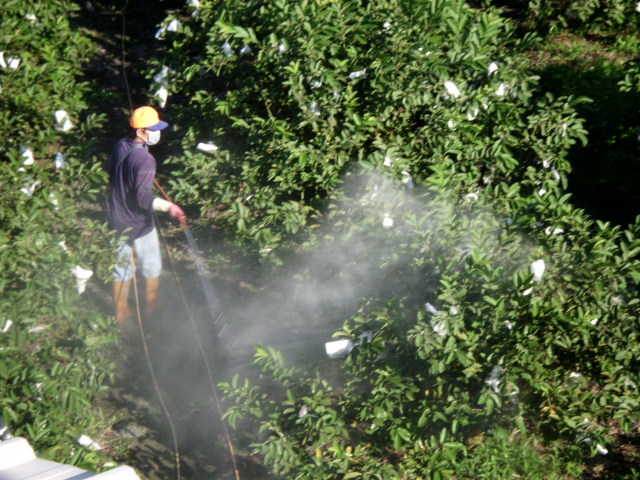
|
9.Pick fruit |
The farmers pick the guavas with scissors |
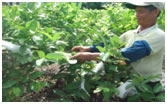
|
TOP
Secrets to Grow Guava
1.Spraying pesticides with caution:The older the guava, the more fruit it can bear. The guava can be picked after being covered with bags for two months’ time. Even if some pesticides have to be sprayed, the farmers would spray them once in ten days in summer, and once in twenty days in winter. It is safe for consumers to eat guavas.
2.Pest prevention:Guava is liable to diseases too. Common problems include red stains and bacteria. Farmers have to resolve such problems with the right solution.
3.Protect the guava from wind blowing:The guava is vulnerable to storms and downpour, as too much rain would make the fruit less sweet.
4.Cutting off boughs:After the harvest season, some boughs of the guava trees have to be cut off, in case the tree grows too high.
5.Guava tastes better in winter:The farmers said that from August (lunar calendar) on, most guavas taste better as guavas start to grow at a slower pace and become sweeter.
TOP |